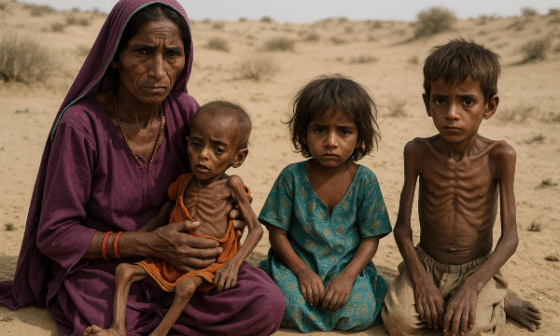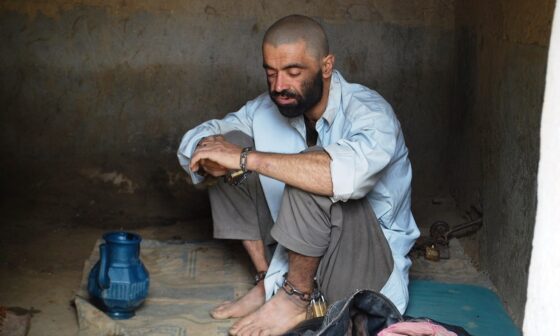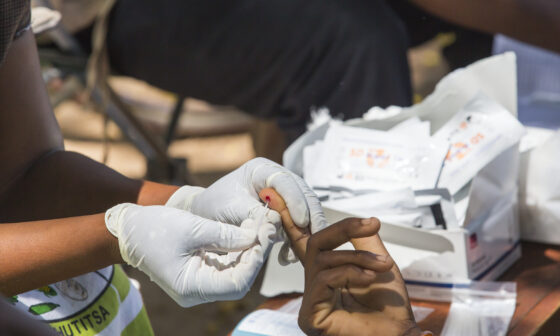Tuberculosis (TB) has long haunted Pakistan’s public health landscape, but in recent years, a more alarming threat has emerged—drug-resistant TB. The country remains among the top five high-burden TB countries in the world, according to the World Health Organization, and the rise of multidrug-resistant tuberculosis (MDR-TB) and extensively drug-resistant TB (XDR-TB) threatens to derail efforts toward TB control. In a country where nearly 570,000 people contract TB annually, the emergence of strains resistant to first-line and even second-line treatments marks a critical public health emergency. Causes of drug resistance include incomplete treatment, poor quality medications, and systemic healthcare deficiencies. In particular, improper prescribing practices and lack of patient adherence have played substantial roles. These factors, combined with poverty, overcrowding, and stigma, create a fertile ground for TB bacteria to mutate and thrive unchecked.
In late 2022, in the city of Hyderabad, 35-year-old Yasir Ahmed’s story became a national wake-up call. After being diagnosed with TB, he began the standard six-month treatment. However, due to economic constraints and sporadic drug availability at his local clinic, Yasir discontinued his medication after just two months. Six months later, his condition worsened, and he was diagnosed with MDR-TB. This time, the treatment regimen was longer, more toxic, and significantly more expensive. His family had to sell household items to afford transportation to Karachi, where a better TB facility existed. Yasir’s deteriorating health and struggle for care highlight the grim reality of patients caught in a cycle of systemic failure and biological resistance. Unfortunately, Yasir is one of many in Pakistan who start treatment but cannot complete it, feeding the rise of resistant TB strains.

Depicting the various challenges for diagnosing and treating Drug-Resistant Tuberculosis among the pediatric population
The challenges in managing drug-resistant TB in Pakistan are multifaceted. Firstly, the country’s healthcare infrastructure, particularly in rural areas, is ill-equipped to detect and manage MDR and XDR-TB cases. Advanced diagnostic tools such as GeneXpert machines are available in urban centers but sparse elsewhere. Even when diagnosed, patients face long treatment regimens with severe side effects, often without psychological support or nutritional assistance. Secondly, there is a lack of trained personnel capable of handling drug-resistant TB cases in remote areas. Community health workers often have limited knowledge about managing resistance or educating patients about the importance of treatment compliance. Additionally, misinformation and stigma contribute to people hiding their illness, further complicating contact tracing and timely interventions.

Sustainable solutions for children and adolescents at risk of drug-resistant tuberculosis
To combat this growing crisis, innovative and community-centric solutions are being deployed. The National TB Control Program (NTP), supported by international partners like the Global Fund and WHO, has launched specific initiatives targeting drug-resistant TB. Mobile diagnostic vans have been dispatched to high-burden districts to identify cases earlier. Patients diagnosed with MDR-TB are now enrolled in Directly Observed Therapy (DOT) programs, where healthcare workers supervise drug intake to ensure adherence. Moreover, financial support and nutritional kits are being provided to vulnerable families to reduce the economic burden of long-term care. In Karachi, the Indus Hospital launched a digital adherence program using smart pill boxes and SMS reminders to track patient compliance, which has significantly improved treatment success rates.
Despite these strides, sustaining progress requires political will, systemic reform, and continued innovation. TB programs must be decentralized, making diagnostics and treatment accessible to rural populations. Public-private partnerships should be strengthened to standardize treatment protocols and improve drug quality. Health literacy campaigns, delivered in local languages and through community leaders, are essential to break the stigma and misinformation surrounding TB. Pakistan must also invest in research and development to create more effective, shorter, and less toxic treatment options. Surveillance systems need to be digitized to allow real-time monitoring and data-driven decision-making. Without these interventions, the drug-resistant TB crisis could reverse the gains made over decades in fighting the disease and could also pose a regional and global threat.
Ultimately, the battle against drug-resistant TB in Pakistan is not merely a fight against a bacteria, but a test of the country’s health governance and social resilience. Yasir’s story, while tragic, is a microcosm of what thousands endure—a preventable escalation of illness due to systemic gaps. Addressing drug resistance requires a holistic approach that merges clinical excellence with community engagement, infrastructure development, and policy alignment. The rise of drug-resistant TB underscores an urgent need for stronger accountability and a robust public health response. If Pakistan can scale successful pilot programs and integrate them nationwide, it has the potential not only to contain the crisis but to set a global example for inclusive and sustainable TB care.

Advancing against drug-resistant tuberculosis: an extensive review, novel strategies and patent landscape
References:
Journal of Infectious Diseases in Developing Countries. (2023). “Challenges in Managing MDR-TB in South Asia.”
World Health Organization. (2023). Global Tuberculosis Report.
National TB Control Program Pakistan. (2022). Annual Report.
Indus Health Network. (2023). Digital Adherence Program for MDR-TB.
Médecins Sans Frontières. (2022). Tackling Drug-Resistant TB in Urban Pakistan.
Global Fund to Fight AIDS, Tuberculosis and Malaria. (2023). Investment Case: Pakistan.
Pakistan Ministry of National Health Services. (2022). National Strategic Plan for Tuberculosis Elimination.
Human Rights Watch. (2023). Health and Human Rights in Pakistan: TB Focus.






